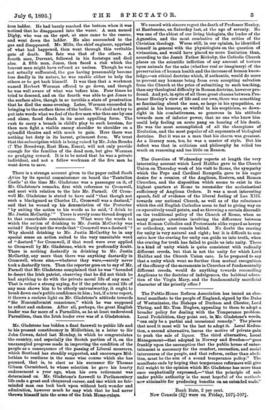The Public-House Reform Association has issued an elec- toral manifesto
to the people of England, signed by the Duke of Westminster, the Bishops of Durham and Chester, Lord Thring, and Mr. Tom Hughes, appealing to them to adopt a. broader policy for dealing with the Temperance problem. Local Prohibition, they point out, in Mr. Gladstone's words, "can only be a partial and occasional remedy." The places that need it most will be the last to adopt it. Local Reduc- tion, a second alternative, leaves the motive of private gain to push the sale of liquor. The third alternative, Local Management—that adopted in Norway and Sweden—" goes frankly upon the assumption that the public house of enter- tainment is necessary for the comfort, recreation, and social intercourse of the people, and that reform, rather than aboli- tion, must be the aim of a sound temperance policy." The manifesto ends by hoping that temperance reformers will give fall weight to the opinion which Mr. Gladstone has more than once emphatically expressed,—" that the principle of sale under public authority is the most hopeful of the methods now attainable for producing benefits on an extended scale."








































 Previous page
Previous page